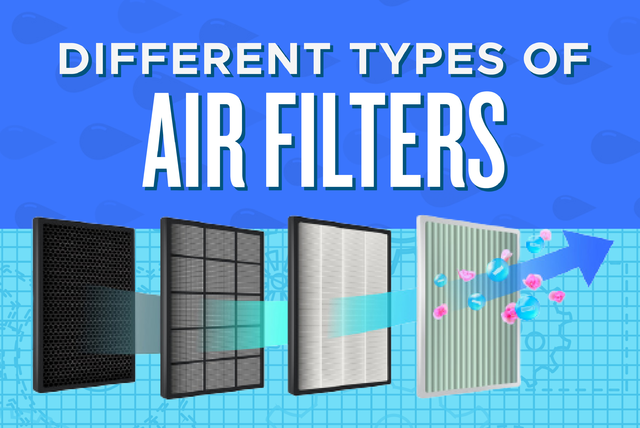Finding the right air filter can make a big difference in the air quality of your home. With so many options available, it can be tricky to know which one is best for your needs. Whether you’re looking to reduce allergens, remove odors, or simply keep dust at bay, understanding the different types of air filters can help you make the choice of air Filter Replacement.
Importance of Air Filters in Your HVAC System
Think of your air filter as the lungs of your HVAC system. It works tirelessly to trap dust, pollen, pet dander, mold spores, and other airborne particles before they circulate throughout your home. A clean air filter not only improves the air quality but also protects your HVAC system from damage and ensures it runs efficiently.
Types of Air Filters
Knowing the different types of air filters available can help you choose the best option for your needs. Here are some of the most common:
- Fiberglass Filters: These are the most common and affordable type, typically found in disposable frames. They offer basic filtration, trapping larger particles like dust and lint.
- Pleated Air Filters: These filters have more surface area than fiberglass filters, providing better filtration efficiency. They are available in various MERV (Minimum Efficiency Reporting Value) ratings, which indicate the filter’s ability to capture smaller particles.
- HEPA Filters: High-Efficiency Particulate Air (HEPA) filters are the gold standard for air filtration. They can capture nearly all airborne particles, including microscopic ones like viruses and bacteria.
- Carbon Filters: Designed to absorb odors and remove harmful gases like VOCs (volatile organic compounds), carbon filters are a good choice for homes with smokers, pets, or strong cooking odors.
- Washable Filters: These reusable filters can be cleaned and reused, making them an eco-friendly and cost-effective option.
- Electrostatic Filters: These filters use static electricity to attract and trap airborne particles. They are generally more effective than fiberglass filters but may require special cleaning.
What Size Filter Do I Need?
Choosing the right size filter is crucial. An oversized filter can restrict airflow, while an undersized filter will quickly become clogged and reduce the efficiency of your HVAC system. Consult your HVAC system’s manual or contact a qualified technician to determine the correct filter size.
Improve the Air Quality in Your Home with Home Climates
Aside from using the right filter, there are other ways to improve indoor air quality. Regularly replacing or cleaning filters, keeping your HVAC system maintained, and using air purifiers can help. If you’re unsure which filter is right for you, consulting an expert can make the decision easier.
Conclusion
With so many air filter types available, choosing the right one depends on your specific needs. Whether you prioritize cost, efficiency, or allergen removal, there’s a filter that fits your home. If you’re looking for expert advice or HVAC services, Air Duct LV Heating & Cooling can help. Visit Air Duct LV Heating & Cooling to learn more.


Related Stories
Air Duct Cleaning Services Cost in Las Vegas: 2026 Prices
Most Las Vegas homeowners pay between $300 and $550 for professional air duct cleaning services
Feb
Stay Cool in the Desert: Expert HVAC Repair in Las Vegas with Air Duct LV
Living in Las Vegas means one thing for sure — you can’t afford to have
Aug
Why AC Leaks Happen—and How We Fix Them Fast
Few things are more frustrating than noticing water pooling near your air conditioner or finding
Jul
Aging Ductwork in Vegas Homes: Risks & When to Replace Instead of Clean
You probably don’t think much about your air ducts—until your home starts feeling less comfortable,
Jul